第64章 PART SECOND(30)
March went away thinking of what Lindau had said,but not for the impersonal significance of his words so much as for the light they cast upon Lindau himself.He thought the words violent enough,but in connection with what he remembered of the cheery,poetic,hopeful idealist,they were even more curious than lamentable.In his own life of comfortable reverie he had never heard any one talk so before,but he had read something of the kind now and then in blatant labor newspapers which he had accidentally fallen in with,and once at a strikers'meeting he had heard rich people denounced with the same frenzy.He had made his own reflections upon the tastelessness of the rhetoric,and the obvious buncombe of the motive,and he had not taken the matter seriously.
He could not doubt Lindau's sincerity,and he wondered how he came to that way of thinking.From his experience of himself he accounted for a prevailing literary quality in it;he decided it to be from Lindau's reading and feeling rather than his reflection.That was the notion he formed of some things he had met with in Ruskin to much the same effect;he regarded them with amusement as the chimeras of a rhetorician run away with by his phrases.
But as to Lindau,the chief thing in his mind was a conception of the droll irony of a situation in which so fervid a hater of millionaires should be working,indirectly at least,for the prosperity of a man like Dryfoos,who,as March understood,had got his money together out of every gambler's chance in speculation,and all a schemer's thrift from the error and need of others.The situation was not more incongruous,however,than all the rest of the 'Every Other Week'affair.It seemed to him that there were no crazy fortuities that had not tended to its existence,and as time went on,and the day drew near for the issue of the first number,the sense of this intensified till the whole lost at moments the quality of a waking fact,and came to be rather a fantastic fiction of sleep.
Yet the heterogeneous forces did co-operate to a reality which March could not deny,at least in their presence,and the first number was representative of all their nebulous intentions in a tangible form.
As a result,it was so respectable that March began to respect these intentions,began to respect himself for combining and embodying them in the volume which appealed to him with a novel fascination,when the first advance copy was laid upon his desk.Every detail of it was tiresomely familiar already,but the whole had a fresh interest now.He now saw how extremely fit and effective Miss Leighton's decorative design for the cover was,printed in black and brick-red on the delicate gray tone of the paper.It was at once attractive and refined,and he credited Beaton with quite all he merited in working it over to the actual shape.The touch and the taste of the art editor were present throughout the number.
As Fulkerson said,Beaton had caught on with the delicacy of a humming-bird and the tenacity of a bulldog to the virtues of their illustrative process,and had worked it for all it was worth.There were seven papers in the number,and a poem on the last page of the cover,and he had found some graphic comment for each.It was a larger proportion than would afterward be allowed,but for once in a way it was allowed.Fulkerson said they could not expect to get their money back on that first number,anyway.Seven of the illustrations were Beaton's;two or three he got from practised hands;the rest were the work of unknown people which he had suggested,and then related and adapted with unfailing ingenuity to the different papers.He handled the illustrations with such sympathy as not to destroy their individual quality,and that indefinable charm which comes from good amateur work in whatever art.He rescued them from their weaknesses and errors,while he left in them the evidence of the pleasure with which a clever young man,or a sensitive girl,or a refined woman had done them.Inevitably from his manipulation,however,the art of the number acquired homogeneity,and there was nothing casual in its appearance.The result,March eagerly owned,was better than the literary result,and he foresaw that the number would be sold and praised chiefly for its pictures.Yet he was not ashamed of the literature,and he indulged his admiration of it the more freely because he had not only not written it,but in a way had not edited it.To be sure,he had chosen all the material,but he had not voluntarily put it all together for that number;it had largely put itself together,as every number of every magazine does,and as it seems more and more to do,in the experience of every editor.There had to be,of course,a story,and then a sketch of travel.There was a literary essay and a social essay;there was a dramatic trifle,very gay,very light;there was a dashing criticism on the new pictures,the new plays,the new books,the new fashions;and then there was the translation of a bit of vivid Russian realism,which the editor owed to Lindau's exploration of the foreign periodicals left with him;Lindau was himself a romanticist of the Victor Hugo sort,but he said this fragment of Dostoyevski was good of its kind.
The poem was a bit of society verse,with a backward look into simpler and wholesomer experiences.
Fulkerson was extremely proud of the number;but he said it was too good --too good from every point of view.The cover was too good,and the paper was too good,and that device of rough edges,which got over the objection to uncut leaves while it secured their aesthetic effect,was a thing that he trembled for,though he rejoiced in it as a stroke of the highest genius.It had come from Beaton at the last moment,as a compromise,when the problem of the vulgar croppiness of cut leaves and the unpopularity of uncut leaves seemed to have no solution but suicide.